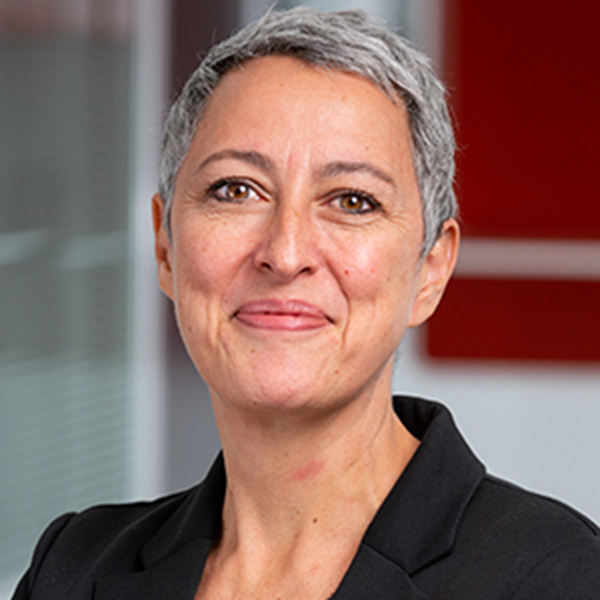
Authors
This blog post is part of a series of interviews on how the private sector contributes to sustainable development through collaboration. It is adapted from an interview that BSR’s Cecile Oger and Laura Marie Uhlmann held with Adrian Suharto, Sustainability Manager at Neste, as research for Private-Sector Collaboration for Sustainable Development, a new report from BSR and The Rockefeller Foundation.
BSR: What role does multistakeholder collaboration play at Neste?
Adrian Suharto: Collaboration is anchored in Neste’s sustainability strategy. As a company, we seek to act responsibly in society and in the use of natural resources, and one way to do so is through multistakeholder collaboration. Neste is an active member in collaborations like the Roundtable on Sustainable Palm Oil (RSPO), the International Sustainability and Carbon Certification (ISCC) Association, the RSB, and other industry collaborations or working groups, all of which help us address sustainability challenges crucial to not only our company but our industry more broadly. Hence, there is a strong internal drive at Neste for collaboration motivated by both our sustainability goals and business goals, as we understand that we cannot tackle industry-level problems in isolation.
BSR: How does collaboration start?
Suharto: Collaboration can be used to leverage influence and economic power to drive positive—even transformational—change. A natural starting point for collaboration is when an organization realizes that it has a stake in a certain issue that aligns with the interests of other stakeholders.
If you take the example of RSPO, one of the key reasons that global brands and retailers, palm oil processors and traders, manufacturers of consumer products, social and environmental NGOs, smallholders, investors, and many others started collaborating on palm oil sustainability was that there was increasing pressure to act as civil society organizations were raising public concern and awareness about the adverse environmental and social impacts associated with palm oil cultivation and increasing use. Companies quickly understood that this issue touched upon different sectors, and the challenges could not be addressed by any single actor or even a single industry alone. Hence, the RSPO was founded as a platform to convene a diverse range of stakeholders around this one common challenge and seek to collectively and effectively address the sustainability challenges of palm oil.
BSR: In your experience, what are some of the key challenges that companies face when engaging in collaboration, and how can these be overcome?
Suharto: A major obstacle to collaboration is a lack of consensus. This is especially common in large, multistakeholder collaborations. Although all actors might acknowledge the need for collaboration, reaching consensus to take action and move ahead on certain issues can be a real challenge.
Competition between companies can also impede successful collaboration. While large companies have a lot of leverage in collaborations due to their economic power, some can be afraid to compromise their competitiveness, be accused of antitrust violations, or lose face in collaborations for which they do not feel prepared. Neste’s commitment to sustainability is very strong, and our palm oil supply chain is 100 percent traceable. We additionally use only certified palm oil. We have experienced cases in the past when other companies that were less advanced in terms of their sustainability commitments on certain issues have been reluctant to collaborate with us.
At the RSPO, we have been successful in avoiding these challenges by working with selective suppliers with similar ambition levels to push forward on the sustainability of palm oil. The lesson here is the role of leadership: If you want a collaboration to be successful, it is important to have a few strong leading organizations that set an example and demonstrate how shared challenges can be solved collectively.
BSR: You mentioned leadership as a success factor for collaboration. What are additional drivers that make collaboration successful?
Suharto: Collaborations are successful if they are relevant to the companies that participate in them, or, in other words, if there is a strong value proposition for companies to collaborate. The RSPO is again a good example. But companies also need to recognize that collaboration requires dialogue, rather than competition. Hence, dialogue and the intention of different actors to collectively tackle shared sustainability challenges are what truly drive successful collaboration.
BSR: What role will collaboration play in the future, and what are the opportunities for companies in engaging with different stakeholders to address sustainability challenges collectively?
Suharto: I believe that the private sector will increasingly look at collaboration as a means to tackle major sustainability issues because it is the most effective way to achieve improvements and transformational change. This will become the new norm.
I also expect to see an increasing level of consolidation in the collaboration space. Many collaborations target similar sustainability challenges and operate in the same region. Understanding common goals through dialogue, not only between companies but also between and across collaborations, is the way forward.
BSR’s latest sustainability insights and events straight to your inbox.
Topics
Let’s talk about how BSR can help you to transform your business and achieve your sustainability goals.









